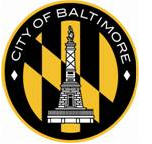Mayor's Statement on DOJ Acceptance of Request for Pattern-or-Practice Investigation
Friday May 8th, 2015

Better Schools. Safer Streets. Stronger Neighborhoods.
Mayor Rawlings-Blake Statement on DOJ Acceptance of Request for Pattern-or-Practice Investigation of Baltimore Police Department
Investigation will build on reforms, help change culture of department
BALTIMORE, Md. (May 8, 2015)—Today, Mayor Stephanie Rawlings-Blake released the following statement in response to the U.S. Department of Justice’s decision to accept her request of a “pattern-or-practice” investigation into the Baltimore Police Department:
“I am pleased the Department of Justice has agreed to my request for a 'pattern-or-practice' investigation into the Baltimore Police Department. Our city is making progress in repairing the fractured relationship between police and community, but bolder reforms are needed and we will not shy away from taking on these challenges. The problems we are confronting in Baltimore are not unique to our city. They did not occur overnight, and it will take time for Baltimore to heal and move forward. I believe we must continue to act boldly to realize the changes we all want to see. My goal is to achieve an enforceable court ordered agreement that ensures accountability as we work to restore trust between police and community.”
The efforts by Mayor Rawlings-Blake and Police Commissioner Anthony Batts are already showing progress. In 2014, citizen complaints alleging excessive force were down 46 percent. Police discourtesy complaints were down 53 percent. Notices of lawsuits alleging police misconduct are down dramatically over the past three years. The Police Department is also reporting greater success at punishing officers who are accused of misconduct.
The request -- made formally this week under statutory code 42 U.S.C. § 14141 – comes after Mayor Rawlings-Blake met with Attorney General Loretta Lynch in Baltimore to discuss the circumstances of the past several weeks and the broader issues confronting not only Baltimore City, but the nation.
According to the Department of Justice, the Baltimore Police Department will now undergo a thorough and independent investigation to seek out any persistent patterns of misconduct, focusing on such areas as excessive force, discriminatory policing, and improper stops, searches or arrests. Federal officials will issue a detailed report at the end of the process, and – if any patterns or practices of unlawful policing are found – a reform agreement, or Consent Decree, would likely be negotiated.
Over the past several years, Mayor Rawlings-Blake and Commissioner Batts have taken a number of steps to build greater trust between the police and the community, including:
- The development in 2013 of a strategic plan for the Baltimore Police Department, commonly known as the “Wasserman Report.” The plan detailed steps the police department would undertake to reduce crime, improve services, increase efficiency, redouble community engagement, and maintain the highest standards of accountability and ethical integrity.
- Dismantled of a police unit known as the Violent Crimes Impact Section, which had been the target of repeated citizen complaints for harassment and use of force.
- A series of public safety town halls across each of Baltimore’s nine police districts starting in March 2014. Mayor Rawlings-Blake and Commissioner Batts solicited community input that was then incorporated into police department changes and reforms. Those reforms have included new ethics and situational training aimed to help our police officers improve the quality of their interactions with citizens.
- Request of the U.S. Department of Justice COPS Program to come to Baltimore and launch a collaborative process to further enhance reforms in October 2014.
- Adoption of a new schedule for patrol officers that puts more officers on the streets during peak times and enables a faster response to citizen calls. With this new schedule in place, Commissioner Batts was able to order all officers to spend at least a portion of each shift walking through the communities they patrol, allowing the development of deeper relationships between officers and the citizens they protect.
- The city is now moving into a procurement process that will have a body camera pilot program in operation in Baltimore by the end of 2015.
- During this most recent session of the Maryland General Assembly, Mayor Rawlings-Blake fought to make substantive changes to the state’s Law Enforcement Officers Bill of Rights to address police misconduct. While the efforts did not win approval in 2015, Mayor Rawlings-Blake has vowed to try again in 2016.
The Department of Justice will continue working with the city through the department’s COPS program as the pattern-or-practice investigation progresses.